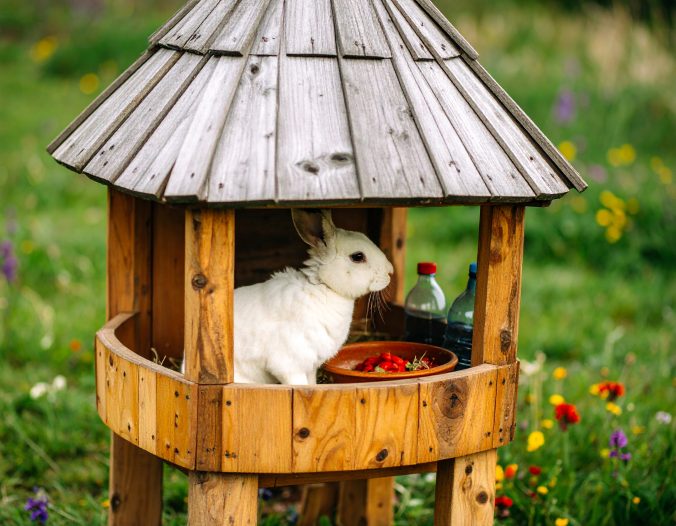Rabbits are intelligent, affectionate animals that can make wonderful companions — but they need more than a hutch and a handful of carrots. If you’re a first-time rabbit owner, understanding their needs is essential for keeping them healthy and happy.
Here’s our beginner-friendly guide to caring for rabbits, covering housing, diet, and enrichment.
Housing: More Than Just a Hutch
Rabbits need space to hop, stretch, and explore. Traditional hutches are often too small for full-time living.
Best setup:
- Indoor housing: Large playpens or “rabbit-proofed” rooms give your rabbit freedom and safety.
- Outdoor housing: A spacious, predator-proof hutch connected to a secure run.
Key requirements:
- At least 3–4 times the length of your rabbit for their enclosure.
- Solid flooring (avoid wire-bottomed cages).
- A safe hiding spot for when they want privacy.
Diet: What Rabbits Really Need
A rabbit’s diet should be mostly fresh hay — it keeps their teeth and digestive system healthy.
Daily essentials:
- Hay: Unlimited access to good-quality timothy or meadow hay.
- Fresh greens: A mix of leafy vegetables like romaine lettuce, coriander, or dandelion leaves.
- Pellets: A small amount of high-quality rabbit pellets (avoid mixes with added seeds or coloured bits).
- Fresh water: Always available in a bowl or bottle.
Avoid: Iceberg lettuce, sugary treats, and too many carrots (they’re high in sugar).
Companionship & Social Needs
Rabbits are social animals. They thrive in pairs or groups — ideally bonded, neutered rabbits. A lone rabbit may become bored or depressed without proper interaction.
If you can’t keep two, spend plenty of time interacting daily through gentle play, grooming, and hand-feeding.
Enrichment: Play and Exploration
A bored rabbit is a destructive rabbit. Provide:
- Tunnels & hideouts: Cardboard boxes, rabbit-safe tubes.
- Chew toys: Untreated wood, willow balls, or cardboard.
- Digging boxes: Filled with safe soil or shredded paper for natural behaviours.
Let your rabbit explore under supervision in a safe, enclosed space — indoors or in a secure garden run.
Healthcare Basics
- Neutering: Prevents unwanted litters and reduces behavioural issues.
- Vaccinations: In the UK, rabbits need protection against Myxomatosis and RHD.
- Regular vet visits: For nail trims, dental checks, and general health assessments.
Building Trust
Rabbits are prey animals, so they may be nervous at first. Sit quietly near them, let them approach you, and avoid sudden movements. Over time, your rabbit will learn you’re a source of safety and treats!
The Joy of Rabbits
Caring for a rabbit is a big commitment, but it’s also deeply rewarding. With the right housing, a balanced diet, and plenty of enrichment, your rabbit can live a healthy, happy life — and bring a lot of joy to yours.
Want more? Check out our upcoming guides on rabbit bonding, DIY rabbit toys, and rabbit-proofing your home.


Leave a Reply